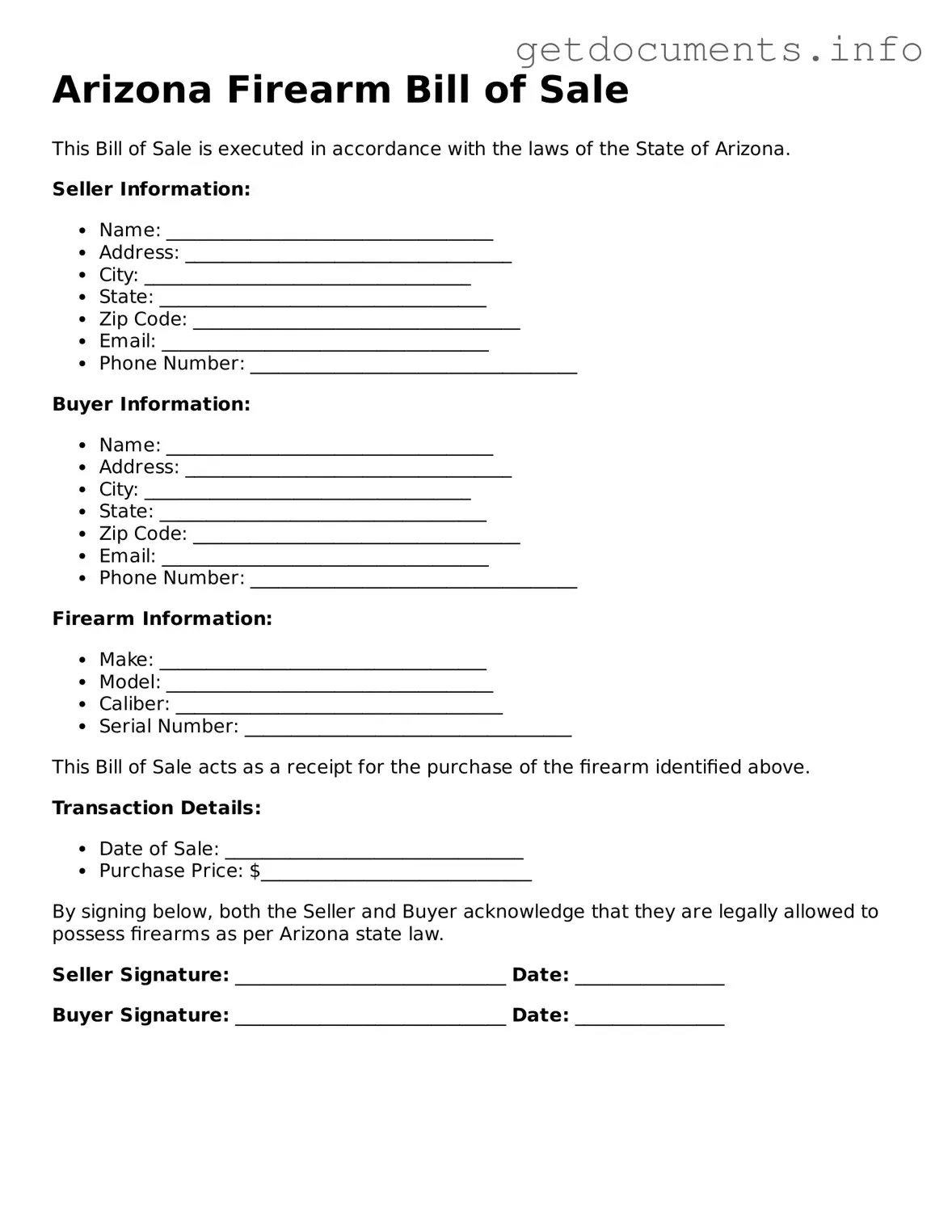Free Firearm Bill of Sale Template for Arizona
The Arizona Firearm Bill of Sale form is a legal document that records the sale or transfer of a firearm between individuals. This form serves as proof of ownership and provides essential details about the transaction. To ensure compliance with state laws and protect both parties involved, it is crucial to fill out this form accurately.
Take the next step in your firearm transaction by filling out the form. Click the button below to get started.
Access Firearm Bill of Sale Editor

Free Firearm Bill of Sale Template for Arizona
Access Firearm Bill of Sale Editor
Got places to be? Complete the form fast
Fill out Firearm Bill of Sale online and avoid printing or scanning.
Access Firearm Bill of Sale Editor
or
⇩ PDF File
